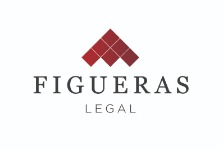Best Lawyers Near You in Madrid, Spain for Debt & Equity
Practice Area Overview
In unfavorable economic circumstances of both structural and cyclical, it is very common that the balance sheets and operating accounts of companies resent, usually resulting in (i) the accumulation of losses in closures -monthly, quarterly, and annually; and (ii) in cash tensions, that translates into unpaid obligations with third parties.
These two circumstances force the Organs of Administration of the Companies subject to Spanish Law to a special task of control and surveillance for react and, thus, take appropriate measures to remove their potential personal liability, under the mechanisms established in the Real Decree Legislative 1/2010, of July 2 (in forward "Capital Companies Law") and in the Bankruptcy Law 22/2003, of July 9, (in forward " Bankruptcy Law").
The legal mechanisms to avoid such liability which they pass through determine this two different situations: (i) if the Company is under a Cause of Dissolution and must re-balance its debt to equity to accomplish with legal requirements; or (ii) if the Company is under an Insolvency Situation and must file the Insolvency Proceedings before the Court (because the insolvency is in a deeper statement and means the impossibility of payments on regular basis for a long time):
(i) Existence of Causes of Dissolution: Mechanism: Re-balancing equity in cases of severe equity loss:
The Board of Directors has the obligation to supervise and direct the accumulation of losses that reduce its assets to less than half of its share capital. Otherwise, the Board has the liability derivation risk corresponding to all those unpaid debts generated after the occurrence of such cause (Article 363.1.e Capital Companies Law).
The Capital Companies Law establishes inescapably to restore the Company’s equity, through the corresponding increase or reduction of capital mechanisms, to remove the Board of Directors liability. If the Board of Directors does not reestablish the Company’s equity, avoiding being in Dissolution Cause, it would be economically responsible (through derivation of responsibility) for the unpaid debts generated after the occurrence of the Dissolution Cause.
Another important point is that equity re-balancing operations will not avoid the responsibility of the Board of Directors in Company’s Insolvency Situation, understood as the impossibility of paying on regular basis in a prolonged period of time.
In such a case, the Board will only be exonerated of presumption of guilt, contained in Article 165.1 joint to Article 164.1 Bankruptcy Law, if it uses the mechanism of Article 5bis Bankruptcy Law - Preparatory Insolvency Proceedings - in order to: A) reach a payment agreement with its suppliers and creditors that remove the Insolvency Situation or B), to file an Insolvency Proceeding if the payment it’s not good enough to remove the Company’s Insolvency Situation.
Article 165.1 and 164.1 Bankruptcy Law allow the Court to declare an Insolvency Proceeding as guilty and derive economic responsibility to the Board of Directors in the event that the Insolvency Proceedings was submitted extemporaneously. It means, two months after the Board knows, that the Company is under an Insolvency Situation.
(ii) Existence of an Insolvency Situation: Mechanism: As commented, a Company is under an Insolvency Situation when it cannot afford the daily payments for a long period of time.
Under such a situation, the Board has two months to submit the Preparatory Insolvency Proceedings (of Article 5bis Bankruptcy Law) or, where appropriate, the corresponding Insolvency Proceedings.
If the Insolvency Proceedings was submitted out of time, the Court could declare the Insolvency Proceeding as guilty and derive economic liabilities to the Board (Article 165.1 and 164.1 Bankruptcy Law).
In conclusion, the responsibility of the Board of Directors established in the Capital Companies Law by the concurrence of a Dissolution Cause for losses is different and independent from an Insolvency Situation. In this sense, a Company under Dissolution Causes:
- If it re-balances equity and is normally continuously paying creditors (because of either creditors’ agreements or banks credit), it would avoid the Board liability established in Article 363.1.e Capital Companies Law and in Article 165.1 and 164.1 Bankruptcy Law.
- If the Board decides just to reestablish equity but is not aware of the impossibility to afford the daily payments and is not submitting the Insolvency Proceedings to the Court in the two months period, the economic responsibility of the Board, established in in Article 165.1 and 164.1 Bankruptcy Law, will persist.

Select a location from the list below to find the best legal talent for your needs.
Lawyers who have a subscription to profiles appear first.
Would you like to claim your lawyer profile?
Contact UsOur Methodology
Recognition by Best Lawyers is based entirely on peer review. Our methodology is designed to capture, as accurately as possible, the consensus opinion of leading lawyers about the professional abilities of their colleagues within the same geographical area and legal practice area.
The Process
Best Lawyers employs a sophisticated, conscientious, rational, and transparent survey process designed to elicit meaningful and substantive evaluations of the quality of legal services. Our belief has always been that the quality of a peer review survey is directly related to the quality of the voters.

